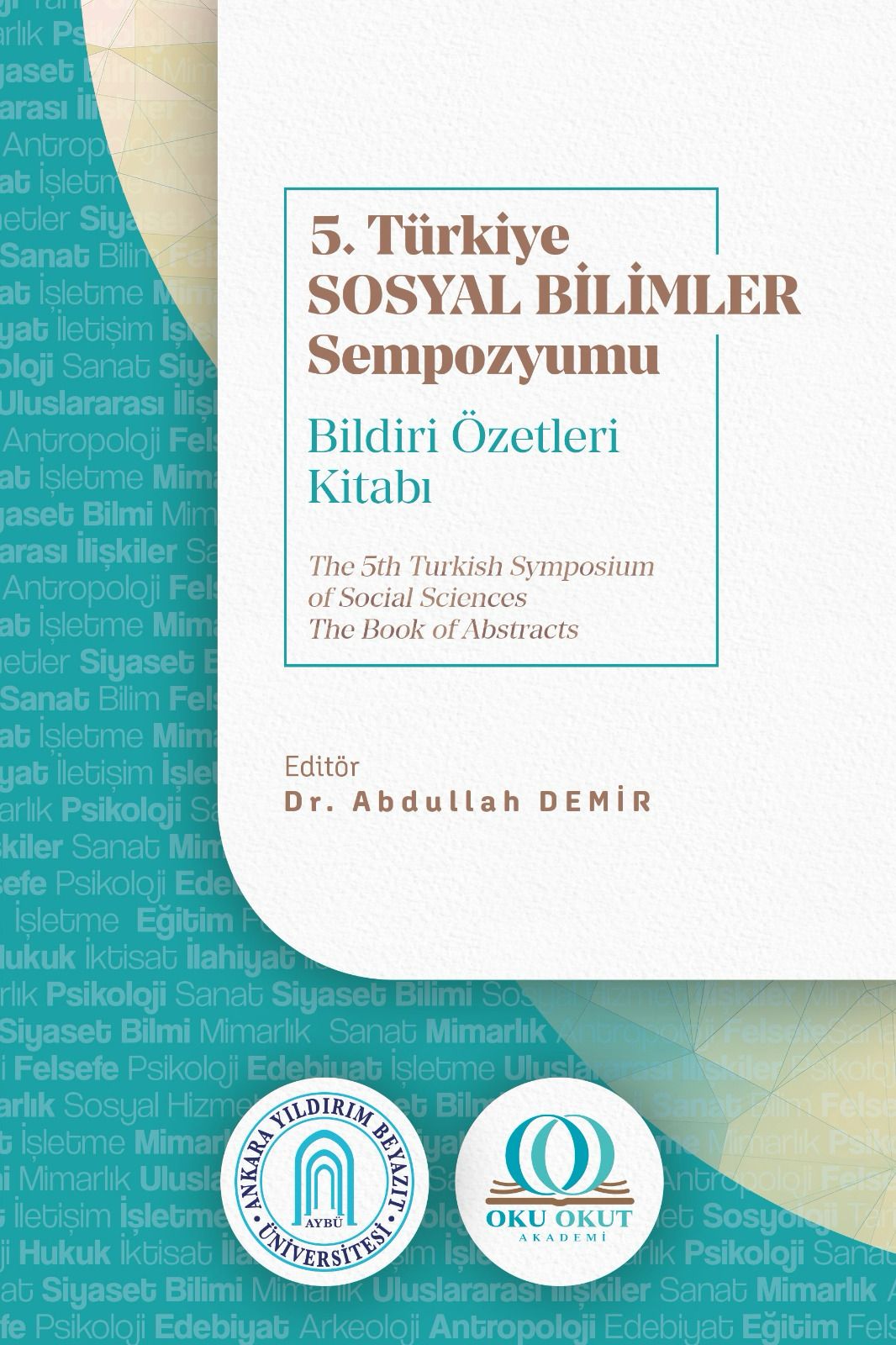Spinoza’s Critique of the Holy Scripture Between Reason and Hermeneutics
Spinoza’da Akıl ve Hermenötik Arasında Kutsal Kitap Eleştirisi
This study, situated within the discipline of philosophy of religion, examines Baruch Spinoza’s critique of the Holy Scripture as presented in his Theological-Political Treatise (Tractatus Theologico-Politicus), and evaluates this critique in light of its philosophical, theological, and historical underpinnings. Spinoza asserts that the sacred texts should not be regarded as the direct speech of God, but rather as historical compositions authored by various prophets and scribes across time. Therefore, their interpretation must rely not on metaphysical assumptions or clerical authority, but on rigorous philological and historical analysis. Spinoza’s central aim is to undermine dogmatic interpretations that disregard context and to challenge the transformation of religious authority into political power. For Spinoza, re-reading the Scripture from a critical perspective is not only a philosophical necessity but also an ethical and political imperative. Within this framework, he criticizes Mūsā b. Maymūn (Maimonides) for subordinating philosophy to religion and Yahūdā b. al-Fakhar for confining interpretation within the internal consistency of the text. According to Spinoza, Scripture cannot serve as a guide for philosophy, as its function is not to reveal truth but to ensure obedience. The absolutization of scriptural authority leads to the suppression of reason and the erosion of intellectual freedom. Hence, Spinoza’s critique is not confined to a theological domain but extends into the political realm: in his view, the formation of free individuals and democratic societies depends on the desacralization of sacred texts and their transformation into objects of critical inquiry. His approach may thus be seen as a precursor to modern secular hermeneutics and rationalist political thought. Furthermore, Spinoza’s project is not merely about personal liberation of conscience, but also about reconstructing the public sphere on the basis of reason. The methodology of this study involves textual analysis and comparative interpretation of thinkers, enriched with direct references from TTP and other relevant writings by Spinoza. The study also incorporates secondary literature to contextualize Spinoza’s arguments within broader philosophical and theological traditions. Spinoza’s critique of the Holy Scripture is not only a textual and hermeneutic exercise but also an act of intellectual resistance against dogmatic theology, institutionalized religious authority, and ideological domination. His hermeneutic method emerges as a philosophical intervention aimed not solely at understanding the meaning of the text, but at affirming the autonomy of the individual and protecting the conditions of freedom—both personal and collective. In this regard, Spinoza’s treatment of Scripture is emblematic of a broader struggle to emancipate thought from theological coercion and to secure the philosophical foundations of critical reason.
Bu çalışma, din felsefesi disiplini çerçevesinde Baruch Spinoza’nın Teolojik-Politik İnceleme (Tractatus Theologico-Politicus) adlı eserinde ortaya koyduğu kutsal kitap eleştirisini ele almakta ve bu eleştiriyi hem tarihsel bağlamı hem de felsefî-teolojik alt yapısıyla değerlendirmektedir. Spinoza, kutsal metinlerin Tanrı’nın doğrudan kelamı değil, tarihsel bir süreç içinde çeşitli peygamberler ve kâtipler tarafından kaleme alınmış metinler olduğunu ileri sürer. Bu nedenle kutsal kitapların anlamı, metafizik kabuller ya da din adamlarının otoritesiyle değil, tarihsel-filolojik yöntemle ortaya konmalıdır. Spinoza’nın yaklaşımında asıl hedef, metnin bağlamını dikkate almadan yapılan dogmatik yorumlara ve dinî otoritenin siyasal güce dönüşmesine yöneltilmiş eleştiridir. Ona göre, kutsal metinlerin eleştirel bir bakışla yeniden okunması, sadece felsefî bir zorunluluk değil, aynı zamanda etik ve politik bir sorumluluktur. Bu bağlamda Spinoza, Musa b. Meymun’un felsefeyi dinin emrine sokan tavrını da Juda b. Alpakhar’ın kutsal metni yalnızca kendi iç bütünlüğüyle yorumlayan yaklaşımını da eleştirir. Spinoza’ya göre, kutsal kitap felsefeye rehberlik edemez; çünkü amacı hakikati göstermek değil, itaati temin etmektir. Kutsal metnin otoritesinin sınırsızlaştırılması, bireysel aklın ve özgür düşüncenin bastırılmasına yol açmaktadır. Spinoza, kutsal kitabın eleştirisini yalnızca teolojik bir düzlemde değil, aynı zamanda politik bir bağlamda yürütür: Ona göre, özgür bireylerin ve özgür toplumların inşa edilebilmesi için kutsal kitapların mutlak otorite konumundan indirilmeleri, eleştirel düşüncenin konusu haline getirilmeleri gerekir. Bu eleştiri, modern seküler hermenötiğin ve laik düşünce biçimlerinin öncülü sayılabilir. Ayrıca Spinoza’nın yaklaşımı, bireysel vicdanın özgürleşmesi kadar kamusal alanın rasyonel yeniden inşasını da hedefler. Bu çalışmada izlenen yöntem, metin çözümlemesi ve düşünürlerin karşılaştırmalı yorumu olup, özellikle TTP başta olmak üzere Spinoza’nın diğer eserlerinden ve ikincil literatürden doğrudan alıntılarla zenginleştirilmiştir. Spinoza’nın kutsal kitap eleştirisi, sadece metin merkezli bir çözümleme değil, aynı zamanda dogmatik teolojiye, kurumsallaşmış dinî otoriteye ve bireyin zihinsel özgürlüğünü kısıtlayan yapılara karşı yöneltilmiş bir düşünsel direniş biçimi olarak değerlendirilmiştir. Bu bağlamda Spinoza’nın hermenötiği, yalnızca metnin anlamını çözmeye değil, bireyin ve toplumun özgürlüğünü tahkim etmeye yönelik felsefî bir müdahale olarak öne çıkar.

Copyright (c) 2025 Kibar Gürbüz (Yazar)
This work is licensed under a Creative Commons Attribution-NonCommercial 4.0 International License.
The CC BY-NC 4.0 license permits sharing, copying, and reproducing the work in any medium or format; it also allows adapting, transforming, and building upon the material, provided that appropriate credit is given to the original work and that it is not used for commercial purposes.
Article Information
- Article Type Religious Studies, Philosophy of Religion
- Submitted June 12, 2025
- Accepted July 22, 2025
- Published November 29, 2025
- Issue The 5th Turkish Symposium of Social Sciences
- Section Religious Studies, Philosophy of Religion
Gürbüz, Kibar. “Spinoza’s Critique of the Holy Scripture Between Reason and Hermeneutics”. Turkish Symposium of Social Sciences 5 (November 29, 2025). https://doi.org/10.55709/tsbsdergisi.654






